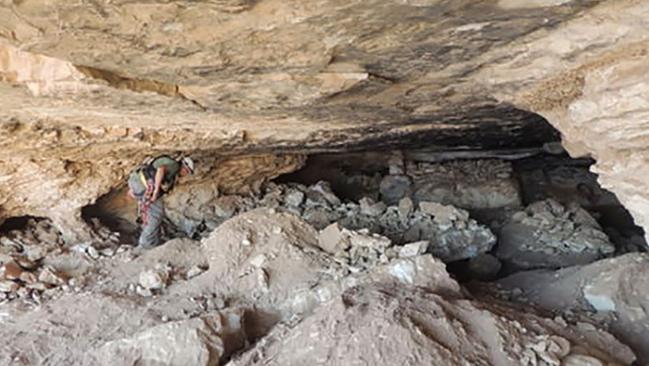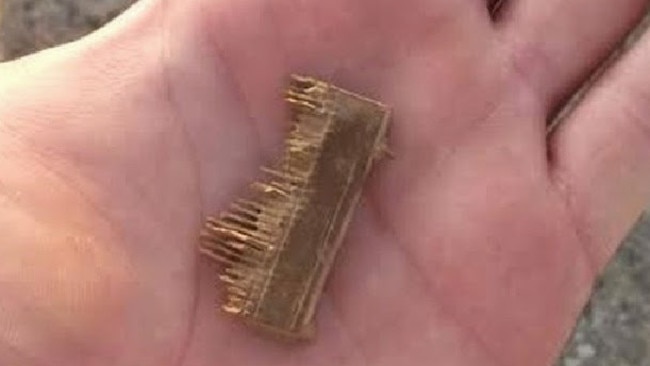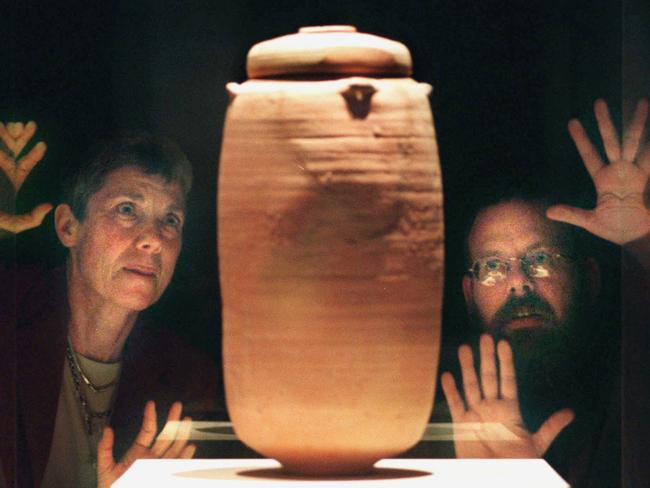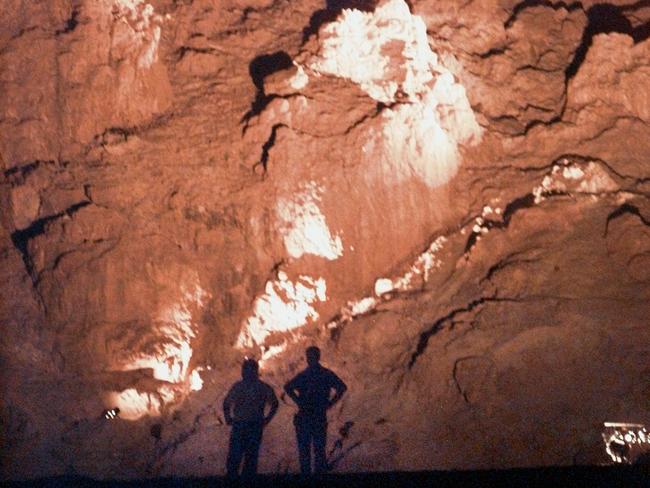Dead Sea scroll cave raid foiled by Israeli antiquities authority
THEY scaled the side of a Dead Sea cliff to slip inside the Cave of Skulls and steal the biblical scrolls. But all did not go as planned.

IT was a precarious mission: Scaling the side of a Dead Sea cliff to slip inside a cave. It wasn’t worth it either — they only found an old comb, and police waiting for them back at the top.
The six wannabe tomb raiders had been well prepared.
Proper abseiling gear. Portable lighting equipment. Advanced metal detectors.
All were assembled for a raid on the ‘Cave of Skulls’ — one of a series of Dead Sea caves in which many biblical scrolls were discovered between 1947 and 1956.
The looters obviously hoped to feed a burgeoning illegal antiquities market with more papyrus scraps and the precious writings they contain.
Not so this time. Their efforts were in vain.

All their hi-tech equipment was able to uncover was a 2000-year-old comb. It was promptly pocketed.
But not for long.
The six appeared in an Israeli court on Sunday after being collared by Israeli Antiquities Authority officers waiting for their return at the top of the cliff.
The arrests came after a year-long operation to stop looting in the Judaean Desert. Uzi Rotstein, an Israeli antiquities inspector, said they had been alerted by the scroll fragments which have recently been trickling onto local antiquities markets.

Profitable plunder
The search for antiquities — in particular papyrus — has become a highly profitable pastime in the Middle East. Rich collectors in Europe, the United States and Asia are asking no questions — but handing over huge wads of cash — for authentic artefacts.
In particular, anything with an inscription.
It’s a trade believed to be fuelling the Islamic State’s incursions into Syria and Iraq.
It’s also prompting cash-strapped Palestinian refugees to scour the deserts of the Holy Land, looking for undiscovered treasure troves.
Some are daring enough to attempt to slip into established sites, such as the Dead Sea Scroll caves.
The stakes are high: But so are the potential rewards.

The Great Isaiah Scroll was one of seven documents found bundled in clay jars found at the site. It is now regarded as one of the greatest archaeological finds of all time.
This bust was the result of a lucky break.
Antiquities inspector Rotstein said he spotted the alleged antiquities looters by chance in late November He was in the desert training as a volunteer in a hiker rescue squad when he took a photograph of a far-off cave on the side of a cliff and noticed two men standing by it.
“No one has any business being there on a Saturday morning,” said Rotstein.
He said the suspects climbed down a steep 70-meter descent. The bottom of the gully was some 150 metres below. Police were waiting for them when they returned in the late afternoon.

Destroyed heritage
The Israeli Antiquities Authority say the six raiders caused “tremendous damage” to the ‘Cave of Skulls’. Lost is the delicate strata of dust, the patterns of which helped archaeologists date their finds over a period of 5000 years. Boulders were up-ended and earthworks removed — eliminating evidence of the handiwork of ancient occupants.
The Dead Sea Scrolls are texts left in caves during the 1st-century Jewish-Roman war and during the 2nd-century Bar Kochba revolt, when Jewish militants battling the occupying Roman army sought refuge in the desert.

The Dead Sea Scrolls are the world’s oldest biblical manuscripts. Their initial discovery in 1947 was one of the 20th century’s greatest archaeological finds.
“For many years now gangs of antiquities robbers have been operating along the Judaean Desert cliffs,” looking for Dead Sea Scrolls, said Amir Ganor, director of the Antiquities Authority’s anti-looting unit, in a press release.
“These finds are sold for large sums of money in the antiquities markets in Israel and around the world. What makes the Judaean Desert so unique is its dry climate that enable the preservation of rare leather, bone, and wooden objects, including the Judaean Desert scrolls
“It has been decades since perpetrators were caught red-handed. This is mainly due to the difficultly in detecting and catching them on the wild desert cliffs,” Ganor said.



